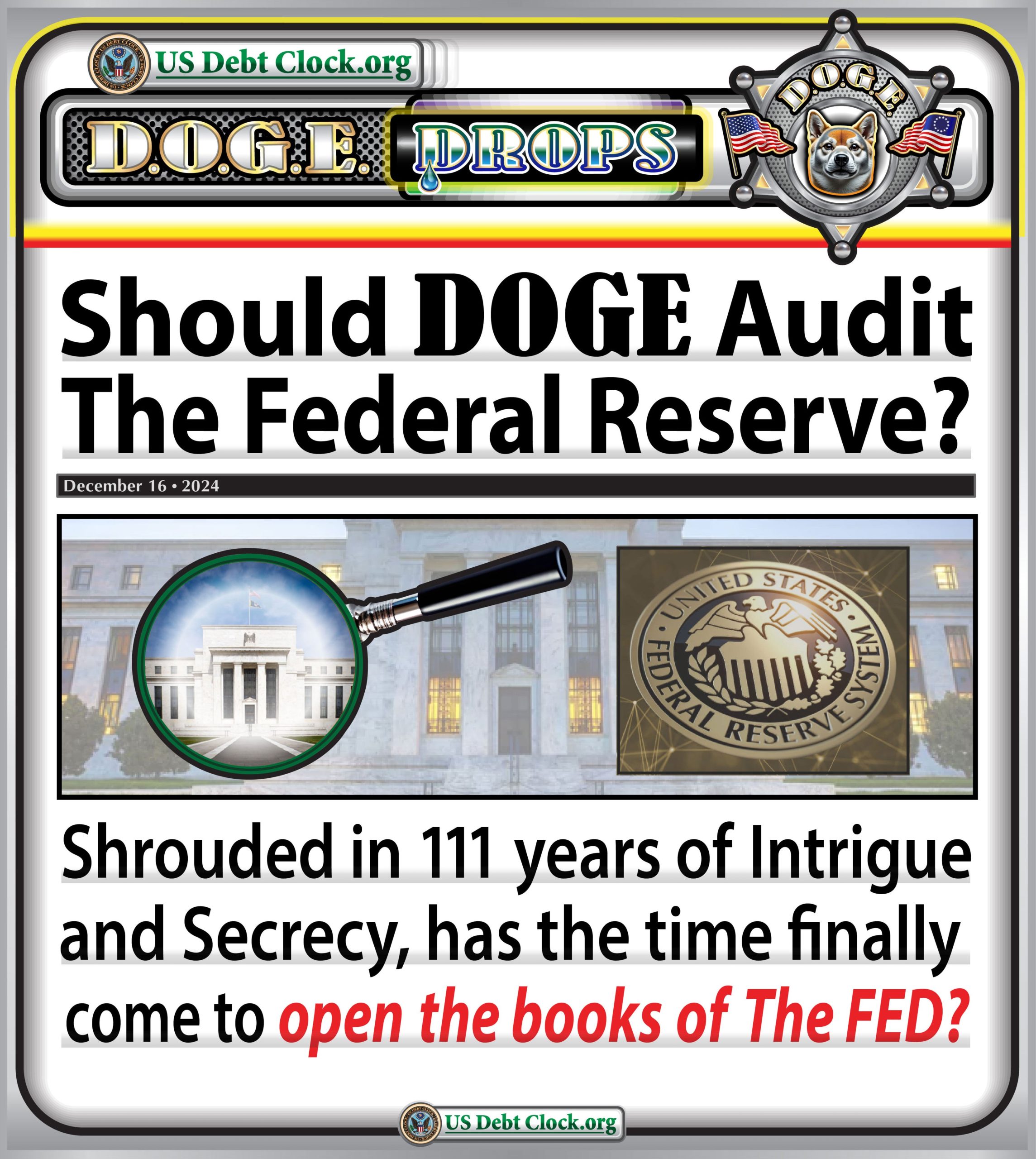Donald Trump, recently elected to his second term as President of the United States, has announced the formation of the Department of Government Efficiency (DOGE)—a groundbreaking commission aimed at streamlining the federal bureaucracy and improving accountability in Washington. Spearheaded by two titans of modern innovation, Elon Musk and Vivek Ramaswamy, DOGE’s mission is ambitious, but one question looms larger than all others: Should DOGE audit the Federal Reserve?
The Federal Reserve, established in 1913, has long been a subject of both reverence and suspicion. As the central bank of the United States, the Fed wields unparalleled influence over monetary policy, interest rates, and the nation’s financial stability. Yet, for over a century, it has operated with a level of secrecy that critics argue is incompatible with the democratic principles it claims to serve.
Shrouded in Secrecy
The Federal Reserve operates as an independent entity, insulated from political oversight. Its meetings, financial dealings, and decision-making processes are cloaked in confidentiality, sparking concerns about accountability. While proponents of the Fed’s independence argue that it is essential to shield monetary policy from political interference, detractors contend that this secrecy breeds mistrust and potential abuse.
Elon Musk, known for disrupting entrenched systems, and Vivek Ramaswamy, a staunch advocate for transparency and decentralization, seem ideally positioned to tackle such an audacious challenge. If DOGE were to open the Fed’s books, the implications would be profound—not only for the U.S. economy but for the global financial system.
Why Audit the Fed?
- Transparency: Auditing the Fed could provide a clearer picture of its operations, including its role in quantitative easing, the issuance of fiat currency, and its relationships with private banks.
- Accountability: Critics have long questioned the Fed’s dual mandate to promote both stable prices and maximum employment, arguing that its priorities can shift unpredictably.
- Public Trust: With economic inequality and inflation at the forefront of public concern, an audit could restore faith in the Federal Reserve by demonstrating a commitment to openness.
Risks of Auditing the Fed
However, the proposal is not without risks. Opponents argue that exposing the Fed to political pressure could destabilize markets, undermine investor confidence, and jeopardize the independence needed to manage complex monetary policies. Would DOGE’s scrutiny be seen as an overreach or as a long-overdue check on an unaccountable institution?
The Time Has Come
The Federal Reserve’s 111-year history has been one of immense power and influence, but also one of mystery and opacity. As the global financial landscape grows increasingly volatile, the question of whether such an institution should remain beyond the reach of public accountability is more pressing than ever.
With Musk and Ramaswamy at the helm of DOGE, the potential to audit the Fed represents not only a moment of reckoning but a chance to redefine transparency in government institutions. Could this be the beginning of a financial revolution—or will it spark unforeseen economic challenges?
Conclusion
Invest Offshore believes that these are the questions investors and citizens alike must grapple with as Trump’s DOGE commission takes shape. Should DOGE audit the Federal Reserve, it would mark a pivotal moment in financial history—one with profound implications for both domestic and international markets.
As always, Invest Offshore offers insights into investment opportunities and geopolitical developments. Don’t forget, we have West African investment projects in the Copperbelt Region seeking investors—explore opportunities with us today!

Leave a Reply